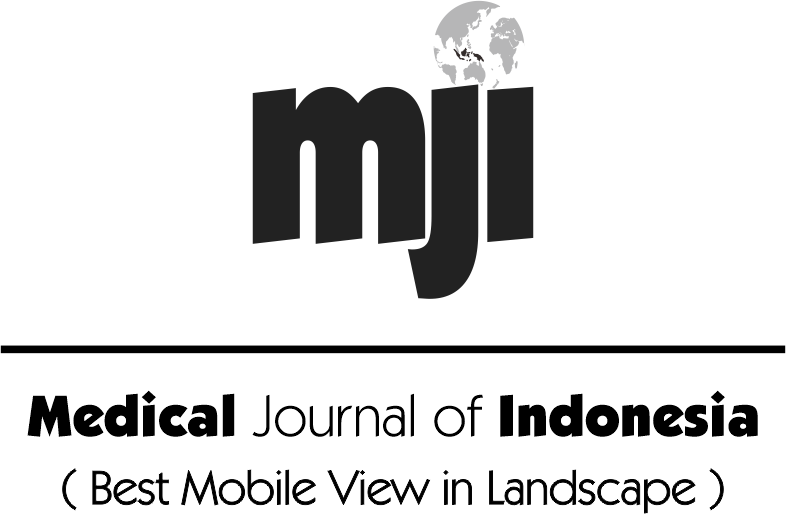“A research that is not published, might as well has not been done.” (Stefan Ückert)
A doctoral program, a structured educational program with a doctoral degree, is the highest academic degree as the endpoint. Original research with specific scientific, professional, and ethical standards is the core curriculum of any doctoral program, embodied in a doctoral dissertation as the defining component.1 A doctoral dissertation should contain novelty in its field, thus advancing a body of knowledge, making it a perfect candidate for publication material in a peer-reviewed scientific journal. Published dissertation also increases citation index2 and prevents unnecessary study replication efforts and systematic reviews/meta-analyses biases, which usually exclude unpublished thesis or dissertation.3 However, unpublished doctoral dissertations still exist, commonly due to negative and nonsignificant results, leading to the “file drawer” dissertation phenomenon.4
Since 2016, the publication of doctoral dissertations in reputable international journals has been mandatory for all doctoral candidates in Universitas Indonesia, including in the Doctoral Programme in Medical Sciences. A letter of acceptance for the manuscript is a prerequisite for the doctoral final exam. The manuscript’s content must cover all or part of the dissertation results. Adapting a lengthy dissertation into a single or multiple-publication manuscript can be a challenge of its own, especially within the time constraint of the 3-year doctoral study period. It requires a special skill acquired through multiple practices and experiences. Some doctoral students have already had several publications on their resumes before the doctoral study; however, some have not.
The Doctoral Programme of Medical Sciences Universitas Indonesia has addressed this need by initiating a collaboration with Medical Journal of Indonesia (MJI), the official journal of the Faculty of Medicine, Universitas Indonesia, and one of the reputable international journals indexed in Scopus. The role of MJI starts early in the first semester through a plenary lecture given by MJI’s Chief Editor on publishing a scientific article in an international journal. The lecture covers manuscript preparation, authorship criteria, submission, and peer-review process. As doctoral candidates prepare for the commencement of their doctoral research, they should, in parallel, develop a strategic plan to conceive the manuscript(s) for publication together with the supervisors from the very beginning. This includes the content and authorship of the manuscript(s) since doctoral research project commonly involves many parties.
After research completion, both the doctoral dissertation and manuscript for publication should be drafted immediately. During this process, MJI offers a hands-on coaching method, where one of its editorial board members will be assigned to coach one doctoral candidate to adapt the dissertation into a manuscript suitable for publication in a reputable international journal. With this timeline and valuable mentorship, a feasible dissertation and publication could be finalized in due time (3 years or less). Meanwhile, submissions to MJI will be regarded as standard submissions, which require approval from the publication ethics before submission and undergo the peer-review process.
On the other side of the coin, the publication of a doctoral dissertation, which should have met a certain standard and quality in MJI, could contribute to the journal’s benefit. The most recent publication from a doctoral dissertation in MJI by Yuliarti et al5 contained part of the main study aiming to learn the profile of human milk oligosaccharides and FUT2 genotype in Indonesian mother-infant dyads, which have not been investigated before.
The knowledge, skills, and experiences during the years of doctoral study should be the backbone and inspiration of continuous research and publications beyond the doctoral degree as a contribution to the academic community. MJI has taken an important part in this journey, and therefore, the Doctoral Programme in Medical Sciences would like to express its utmost appreciation.
REFERENCES
- Evans SC, Amaro CM, Herbert R, Blossom JB, Roberts MC. “Are you gonna publish that?” Peer-reviewed publication outcomes of doctoral dissertations in psychology. PLoS One. 2018;13(2):e0192219.
- Larivière V, Zuccala A, Archambault É. The declining scientific impact of theses: implications for electronic thesis and dissertation repositories and graduate studies. Scientometrics. 2008;74:109–21.
- Open Science Collaboration. Estimating the reproducibility of psychological science. Science. 2015;349(6251):aac4716-1–8.
- Pautasso M. Worsening file-drawer problem in the abstracts of natural, medical and social science databases. Scientometrics. 2010;85:193–202.
- Yuliarti K, Mansyur M, Timan IS, Ariani Y, Ernawati, Sidhiarta IGL, et al. DNA quality from buccal swabs in neonates: comparison of different storage time. Med J Indones. 2023;32(1):7–12.
